Browse
No Preview Available
Postgraduate Training Opportunities under the RUFORUM
Graduate Teaching Assistantship Program (GTA)
During the annual meeting of Vice Chancellors/Presidents/Principals/Rectors of RUFORUM Member Universities (see links about RUFORUM flier and RUFORUM at a Glance) held on 11th November 2020, the Vice Chancellors re-affirmed their commitment to the Graduate Teaching Assistantship Program that they initiated in 2014. The objectives of the GTA are to: i) Improve the quality of higher education and increase the pool of PhD-level trained academic staff in African universities; ii) Provide opportunities for the doctoral research to contribute more directly to African development; iii) Strengthen inter- university collaboration in the field of higher education in Africa; and iv) Promote staff mobility among RUFORUM member universities, and across Africa.
Following the meeting of the Vice Chancellors on 11th November 2020, the RUFORUM Secretariat is pleased to announce the availability of training opportunities at the different Member Universities as part of the GTA arrangement. The Secretariat invites for more offers from the other member universities to train GTA candidates.
Under the GTA arrangement:
The sending universities nominate the staff to be trained and RUFORUM Secretariat helps to get them placed in receiving (host) Universities
The sending universities commit to pay for travel, health insurance, upkeep and research of their staff under training
The receiving/host universities waive the fees and associated costs, and provide accommodation for the admitted GTA Fellows
Once admission process is completed, the sending and host universities and the nominated GTA Fellow sign a Tripartite Agreement to guide the hosting and training of the Fellow
In some cases where opportunities exist, the host University may attach the GTA Fellow to the research program at the hosting university
The RUFORUM Secretariat facilitates the GTA arrangement and follows up on the GTA training
The nominations by the Vice Chancellors for the available positions should be submitted to RUFORUM Executive Secretary at secretariat@ruforum.org as soon as possible.
Learn more: https://ruforum.wordpress.com/2021/08/09/postgraduate-training-opportunities-under-the-ruforum-3/?utm_source=RUFORUM+Mailing+List&utm_campaign=d18db56afe-RUFORUM+Weekly+-+Vol.3+No.25_COPY_01&utm_medium=email&utm_term=0_1fcfbb8a0b-d18db56afe-346973753&ct=t()&goal=0_1fcfbb8a0b-d18db56afe-346973753&mc_cid=d18db56afe&mc_eid=d95cf18a8dn
Read more
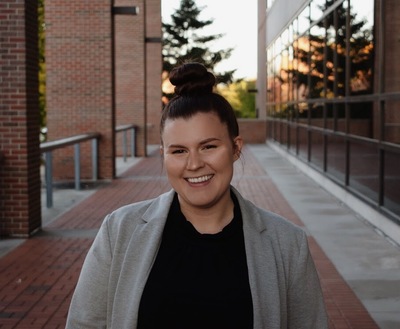
By: Madeleine Futter
Due Date: Nov, 11, 2021
Education
Leave a comment

The Ibrahim Leadership Fellowships
The Ibrahim Leadership Fellowships were established in 2011 to identify and mentor the future generation of outstanding African leaders. Each year three Fellows have an opportunity to work in the executive offices of the AfDB (Abidjan), ECA (Addis Ababa) or the ITC (Geneva), with a stipend of $100,000. During their 12-month programmes, Fellows gain both technical and leadership skills, while contributing directly to research and policy design. A special feature of the programme is the opportunity to benefit from the direct mentorship of the heads of the host organisations. Fellows also become members of the Now Generation Network (NGN), through which they continue to contribute their skills and insights to building a better Africa.
More information about the opportunity can be found on Mo Ibrahim Foundation website.
Read more
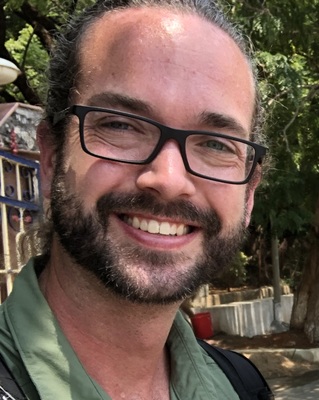
By: Derek Tobias
Due Date: Oct, 15, 2021
Culture and society
+1
Leave a comment
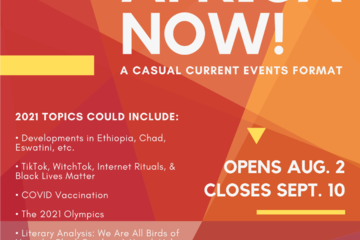
ASA 64th Annual Meeting: 2021 Call for Proposals
AfricaNow! Call for Proposals
The African Studies Association (ASA) is excited to continue our AfricaNow! format to accommodate emerging issues on our Annual Meeting program. These sessions will feature late-breaking issues that emerged subsequent to the close of the ASA CFP.
Format:Sessions can be proposed as group discussions (maximum of five presenters), individual presentations, or memorials. Please ensure that your AfricaNow! proposal meets the following criteria:• Proposals must relate directly to current events on Africa and/or African Studies.• All AfricaNow! organizers and presenters must register for the Annual Meeting when notified of acceptance.
Suggested Topics for 2021 are (but not limited to):• Developments in Ethiopia, Chad, Eswatini, South Africa, etc.• TikTok, WitchTok, Internet Rituals, & Black Lives Matter• COVID Vaccination• The 2021 Olympics• Literary Analysis: We Are All Birds of Uganda, Black Sunday: A Novel, Unbury Our Dead With Song, etc.• All 2021 Memorials
To Submit:Please prepare a (1) basic title, (2) an abstract that describes the session and confirms its timeliness, (3) the format, (4) the names and affiliations of each presenter, (5) the duration of the session, and (6) your preferred date and time. We will do our best to accommodate your preferences.
Submission GuidelinesAfricaNow! sessions will not be peer-reviewed and submissions of formal panels and papers will not be accepted in this format. The participation rules do not apply to AfricaNow! sessions. Presenters who are already on the program may submit proposals. Abstracts that were already submitted prior to the submission deadline cannot be resubmitted for AfricaNow! consideration. All requests for sessions will be reviewed by the ASA Secretariat for general appropriateness.
The AfricaNow! submission portal via OpenWater is currently open and will close September 10, 2021.
SUBMIT TO AFRICANOW! HERE.
Read more

By: Madeleine Futter
Due Date: Sep, 10, 2021
Culture and society
+1
Leave a comment

The Humanities and Arts Research Program (HARP) Development program
The Humanities and Arts Research Program (HARP) Development program provides funds to support faculty who are conducting important research leading to creative and performance projects or activities in the arts and humanities. This limited funding is designed to support faculty in the development of projects that seem likely to enhance the reputation of the faculty member and the university.
Within the Development program, there are two panels that conduct the reviews: the Humanities Research panel and the Exhibition and Performance panel. The Humanities Research panel will review applications that are supporting research projects and scholarship broadly related to the humanities. The Exhibition and Performance panel will review proposals that support scholarship and creative activities leading to an exhibit or performance. See the FAQs for clarification.
The deadline for HARP Development applications will be in early-October, with awards announced in February. Funding will be available for a two year period beginning on March 1.
What types of projects are eligible?
HARP development projects should:
produce results or a product that is likely to receive external recognition (e.g., through a publisher's interest or through available distribution or exhibition venues) or be used beyond MSU.
ultimately lead to a scholarly or creative product (e.g., book, CD, musical composition, play, artwork) with the potential for significant impact in the discipline or related areas.
Who is eligible?
Tenured and tenure-track faculty
Faculty with uninterrupted, multi-year, fixed term appointments
Faculty with one-year appointments who are able to obtain written confirmation from their department chair of pending appointment through the duration of the grant (letters from the chair should be uploaded as part of the project description)
Academic specialists in the continuing appointment system who have the majority of their effort in the research category
Part time faculty who 1) have had an appointment for two consecutive years prior to the date of their submission, 2) have a commitment from their department chair indicating that their appointment will continue through the duration of the granting period, and 3) have an appointment of at least 50% with MSU
Faculty from Arts and Letters, Communication Arts and Sciences, James Madison, Lyman Briggs, Music, Social Science, and the Residential College in the Arts and Humanities are eligible to apply for HARP funding.
NOTE: Faculty emeriti are not eligible to apply for HARP funding.
NOTE: Faculty rank and proximity to promotion and tenure decisions will not be considered in the evaluation of proposals. All applications will be evaluated on the merit of the work being proposed.
For more information or to apply, visit the MSU Research and Innovation website
Read more

By: Derek Tobias
Due Date: Oct, 7, 2021
Culture and society
+3
Leave a comment

Discretionary Funding Initiative (DFI)
The Discretionary Funding Initiative (DFI), funded by the Michigan State University Foundation, provides bridge funds for tenure stream faculty for additional studies needed for resubmission of an unsuccessful, but nearly fundable, grant application to the same program within a funding agency.
To request funding from this program, faculty should submit a proposal via the grant proposal system. Applicants will be expected to provide copies of their previous external reviews, if applicable, and describe the work that will be completed to address the comments provided in those documents. The research associate dean of the applicant's college (lead college if appointed in multiple colleges) will review applications, and submit a prioritized list to the Office for Research and Innovation (OR&I). Requests for support approved by the research associate deans will be reviewed by the OR&I.
The maximum award from OR&I will be $25K and will require a 100% (up to $25K) match from units or colleges. Funds will be available for 18 months.
For more information or to apply, click here.
Read more

By: Derek Tobias
Due Date: Sep, 9, 2021
Agri-food systems
+5
Leave a comment
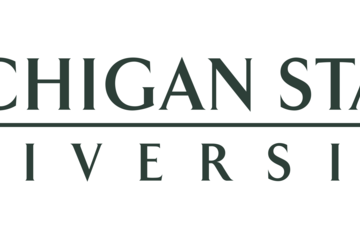
Strategic Partnership Grant
Funded jointly by the MSU Foundation and MSU colleges, the Strategic Partnership Grants (SPG) Program is an important funding mechanism to support promising new initiatives in key areas of research, scholarship and multidisciplinary collaboration. A successful SPG concept would be of sufficient caliber that it would achieve several of the following aspirations:
Create a nexus of national/international research preeminence that will raise the stature of the university, significantly differentiating MSU from its peers.
Promote productive and sustained research collaboration and productivity among faculty that, without this funding, would otherwise not occur.
Promote work that is high risk, high return, with a potential for high reputational benefit.
Position MSU faculty to compete successfully for significant external funding by creating a path to sustainability of the research endeavor; builds a bridge to a future, not a project that ends at the end of the SPG funding.
Promote the development of research ideas with significant (long term) commercial potential and/or broad community or global impact.
The SPG program enables such opportunities by supporting research and scholarship that is leading-edge, interdisciplinary, and capitalizes on the existing intellectual and research resources at Michigan State University. The SPG program advances MSU Foundation’s mission to provide grant funding for the development of new knowledge, to lay the groundwork for centers of excellence at the university, and to invest in the development of Michigan State University as one of the nation's leading research institutions. Managed by the Office of Research and Innovation (OR&I), proposals for new and innovative research initiatives are solicited annually in a two-stage review process (preliminary proposals and invited full proposals). Up to five applications will be submitted for review by the MSU Foundation in June of each year.
Eligibility
The SPG program is open to multidisciplinary or multi-institutional PI teams comprised of:
Full time tenured and tenure-track faculty
Faculty with uninterrupted, multi-year, fixed term appointments in academic departments (faculty with visiting or adjunct appointments are not eligible)
Faculty with one-year appointments who obtain written confirmation from their departmental chair that they will be appointed through the duration of the grant (letters from the chair should be attached to the faculty’s CV and uploaded under the PI/Co-PI Information tab).
Academic specialists in the continuing appointment system who have the majority of their effort in the research category (the term "faculty" in this RFP includes these specialists)
Click here for more information on the funding opportunity or to apply
Read more

By: Derek Tobias
Due Date: Sep, 9, 2021
Education
Leave a comment

Scaling Sustainability and Resilience of Community Conservancies in Northern Rangelands and Coastal
The United States Agency for International Development (USAID) is seeking concept paper applications for an assistance type of award mechanism from qualified entities to implement the Scaling Sustainability and Resilience of Community Conservancies in Northern Rangelands and Coastal Ecosystems of Kenya program. Eligibility for this award is not restricted.
USAID intends to fund one or multiple awards to maximize development impact and efficient resource use by engaging in new, or expanding existing, partnerships in priority areas identified in the program description. The program intends to adopt and scale innovative solutions in meeting the identified development challenges. USAID/Kenya and East Africa (USAID/KEA) intends to award to the applicant(s) who best meets the objectives of this funding opportunity based on the merit review criteria described in this NFO, subject to a risk assessment. Eligible parties interested in submitting applications are encouraged to read this NFO thoroughly to understand the type of program sought, application submission requirements and selection process.
This NFO will follow a 3-phase process:
Phase 1: Submission of Concept Paper
Phase 2: Participation in Co-creation Workshop – for pre-selected successful applicant(s)
Phase 3: Submission of Full Application
More information on the funding opportunity can be found on on the grants.gov website
Read more

By: Derek Tobias
Due Date: Sep, 13, 2021
Water, energy, and the...
Leave a comment
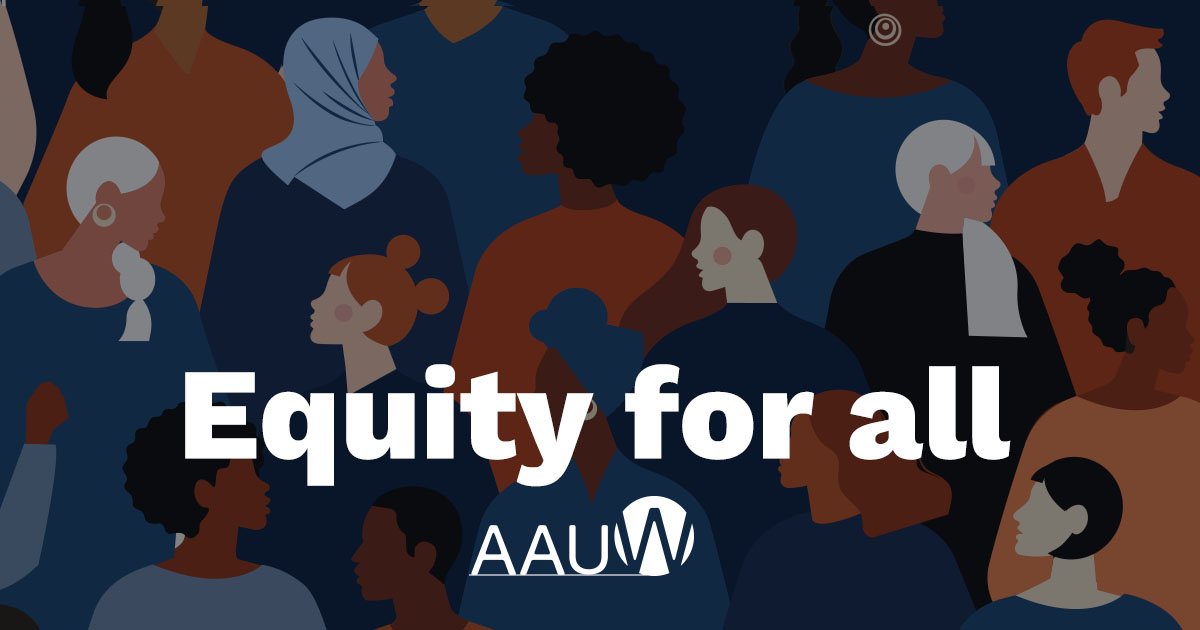
No Preview Available
AAUW: International Fellowships
Funding: $18,000–$30,000Opens: August 1Deadline: November 15
International Fellowships have been in existence since 1917. The program provides support for women pursuing full-time graduate or postdoctoral study in the United States to women who are not U.S. citizens or permanent residents, and who intend to return to their home country to pursue a professional career. A limited number of awards are available for study outside of the U.S. (excluding the applicant’s home country) to women who are members of Graduate Women International (see the list of GWI affiliates). Both graduate and postgraduate studies at accredited U.S. institutions are supported.
Applicants must have earned the equivalent of a U.S. bachelor’s degree by the application deadline and must have applied to their proposed institutions of study by the time of the application. Recipients are selected for academic achievement and demonstrated commitment to women and girls.
Recipients return to their home countries to become leaders in business, government, academia, community activism, the arts or scientific fields.
For more information go to: https://www.aauw.org/resources/programs/fellowships-grants/current-opportunities/international/
Read more

By: Madeleine Futter
Due Date: Nov, 15, 2021
Culture and society
Leave a comment
No Preview Available
TWAS Fellowships for Research and Advanced Training
TWAS offers fellowships to young scientists in developing countries to enable them to spend three to 12 months at a research institution in a developing country other than their own. The purpose of these fellowships is to enhance the research capacity of promising scientists, especially those at the beginning of their research career, helping them to foster links for further collaboration.
Eligibility
The fellowships are for research and advanced training. They are offered to young scientists holding at least an MSc or equivalent degree.
Eligible applicants for the fellowships are young scientists working in any area of natural sciences who are citizens of a developing country and are employed by a research institution in a developing country.
There is no age limit. However, preference is given to young scientists at the beginning of their research career and those working in Least Developed Countries.
Lists of possible host institutions divided by field are available here. These lists are only a suggestion and institutions that are not included are acceptable as long as they are in a developing country.
Institutes of the Chinese Academy of Sciences (CAS), China, are not eligible host institutions under this programme. Applicants interested in conducting a fellowship in China are required to check whether their chosen host is a CAS institute. For a complete list of CAS institutes, see: english.cas.cn/institutes/. Applicants wishing to attend a CAS institute should either apply to the CAS-TWAS President’s Postgraduate Fellowship Programme or consider the CAS Fellowships for Postdoctoral and Visiting Scholars from Developing Countries (http://english.cas.cn/cooperation/fellowships/201503/t20150313_145274.shtml).
Deadline: 1 October each year.
Terms of the Fellowships
The fellowships are offered for a minimum of three months and a maximum of twelve months.
TWAS covers international low-cost airfare plus a contribution towards subsistence amounting to a maximum of USD 300 per month. No other costs will be provided by TWAS.
The host institution is expected to provide accommodation and food as well as research facilities.
Fellowships are awarded by the TWAS Fellowships Committee on the basis of scientific merit.
Submitting your application
Applicants must complete the online application form by clicking on the 'Apply now' button at the bottom of this page. While filling in the online application, applicants also need to upload the following documentation:
scanned copy of your passport, even if expired (page with your name and surname);
CV, maximum five pages including publications;
Supporting Statement from Head of Home Institution;
two reference letters of senior scientists familiar with your work. Please note that the Head of your Home Institution cannot be one of your referees;
MSc certificate and relevant university transcripts;
Official invitation letter from the Head of the Host Institute;
IMPORTANT
Note that the Fellowships are provided for South-South visits only, i.e. for visits by researchers from developing countries to institutions in other developing countries.
Please be advised that applicants may apply for only one programme per calendar year in the TWAS and OWSD portfolio. Applicants will not be eligible to visit another institution in that year under the TWAS Visiting Professorprogrammes. One exception: the head of an institution who invites an external scholar to share his/her expertise under the TWAS Visiting Professor programmes may still apply for another programme.
Contact email:
exchanges@twas.org
Read more

By: Madeleine Futter
Due Date: Oct, 1, 2021
Other
Leave a comment
No Preview Available
South-North Programme for Exchanges and Collaborations
The UNTBLDC-TWAS-ICGEB South-North Programme for Exchanges and Collaborations provides scientists from LDCs who hold a MSc, preferably a PhD, and who are maximum 45 years old, with the opportunity to pay a visit to ICGEB laboratories in Trieste, Italy, for the duration of 6 months maximum. The aim of the visit is to provide the opportunity to become acquainted with the scientific process, including how to develop a research project and take it to a successful conclusion and how to teach, train and transfer knowledge to younger students and researchers. Moreover, scientists will be exposed to an international scientific environment which will be an asset in the progression of their careers and will also positively impact their institution of origin.
The United Nations Technology Bank for Least Developed Countries, through TWAS, will cover travel expenses and provide subsistence costs for the stay in Italy, while the International Centre for Genetic Engineering and Biotechnology, as host institution, will provide the laboratory facilities and the research support.
The administration and financial operation of TWAS is undertaken by UNESCO in accordance with an agreement signed by the two organizations.
Eligibility
Applicants must be a maximum age of 45 years on 31 December of the application year;
Applicants must have a MSc, preferably a PhD;
Applicants must be living and working in a Least Developed Country (LDC);
Women scientists are especially encouraged to apply;
Proposals need to be on projects relevant to ICGEB Trieste:
Non communicable diseases (cardiovascular disorders; cancer; immunology; neurodegeneration; genetic disease);
Human viral diseases (dengue, chikungunya, zika, tick-borne encephalitis viruses, Covid19);
Biotherapeutics and Biosimilars;
Plant biotechnology and microbiome studies;
Computational Biology.
Submitting your application
Applicants must complete the online application form by clicking on the 'Apply now' button at the bottom of this page. While filling in the online application, applicants also need to upload the following documentation:
scanned copy of your passport, even if expired (page with your name and surname);
CV, maximum two pages including a list of your 6 best publications;
A recent invitation letter from the ICGEB host Professor – on the host institution’s letterhead paper – which should contain the proposed time of the visit (up to 6 months) and should refer to the proposed cooperation. It should be made evident that the applicant and the proposed host have been in contact regarding the scientific work to be done during the visit and that the conditions for conducting the work have been agreed in terms of the timing of the visit and the facilities available.
two reference letters from senior scientists familiar with your work. The letters need to be on headed paper and signed;
copy of your MSc certificate;
evidence of proficiency in English;
supporting statement from the Head/Director of the applicant's home institute: it must confirm that the Head/Director is favourable to the application and that the applicant will be granted leave to take up the cooperation visit in Italy if awarded.
Timescale and recommendations for applicants
It is strongly recommended that you start the process well in advance as the following stages are required:
study the host institution website to consider research areas and possible host supervisor;
get in touch with potential host supervisor to introduce yourself and discuss research plan for a possible visit;
should there be an agreement, obtain acceptance letter from potential host supervisor;
register on the online platform, fill in the form and upload all documentation to submit your application.
Other information
The UNTBLDC-TWAS-ICGEB South-North Programme does not include provisions for accompanying family members.
Applications for part-time visits will be considered ineligible.
Successful applicants must not take up other assignments during the period of their visits.
TWAS shall be entitled to a repayment of all or part of any funds paid to an applicant hereunder, in the event that the applicant intentionally or negligently fails to fulfil any or all of the above conditions. The applicant agrees to pay any reasonable legal and/or collection costs incurred by TWAS to obtain the repayment.
Please be advised that applicants may apply for only one programme per calendar year in the TWAS and OWSD portfolio. Applicants will not be eligible to visit another institution in that year under the TWAS Visiting Professor programmes. One exception: the head of an institution who invites an external scholar to share his/her expertise under the TWAS Visiting Professor programmes may still apply for another programme.
Contact email:
exchanges@twas.org
Read more

By: Madeleine Futter
Due Date: Aug, 31, 2021
Agri-food systems
+1
Leave a comment
No Preview Available
South-South Programme for Exchanges and Collaborations
The UNTBLDC-TWAS-ICGEB South-South Programme for Exchanges and Collaborations provides scientists from LDCs who hold a MSc, preferably a PhD, and who are maximum 45 years old, with the opprtunity to pay a visit to either the ICGEB Cape Town, South Africa or the ICGEB New Delhi, India for the duration of 6 months maximum. The aim of the visit is to provide the opportunity to become acquainted with the scientific process, including how to develop a research project and take it to a successful conclusion and how to teach, train and transfer knowledge to younger students and researchers. Moreover, scientists will be exposed to an international scientific environment which will be an asset in the progression of their careers and will also positively impact their institution of origin.
The United Nations Technology Bank for Least Developed Countries, through TWAS, will cover travel expenses and provide subsistence costs for the stay at the host institution, while the International Centre for Genetic Engineering and Biotechnology, as host institution, will provide the laboratory facilities and the research support.
The administration and financial operation of TWAS is undertaken by UNESCO in accordance with an agreement signed by the two organizations.
Eligibility
Applicants must be a maximum age of 45 years on 31 December of the application year;
Applicants must have a MSc, preferably a PhD;
Applicants must be living and working in a Least Developed Country (LDC);
Women scientists are especially encouraged to apply;
Proposals need to be on projects relevant to
ICGEB Cape Town:
Parasitic Diseases (tuberculosis, African trypanosomiasis, leishmaniasis and helminthic infections);
Human viral diseases (emerging viruses);
Cancer;
Biopesticides;
Systems Biology
or ICGEB New Delhi:
Agricultural biotechnology (Crop improvement, biotic and abiotic stress resistance);
Human Viral Diseases (dengue, tuberculosis, Covid19 etc.);
Human Parasitic Diseases (Malaria);
Recombinant Diagnostics & Vaccines development;
Cancer;
Biofuels.
Submitting your application
Applicants must complete the online application form by clicking on the 'Apply now' button at the bottom of this page. While filling in the online application, applicants also need to upload the following documentation:
scanned copy of your passport, even if expired (page with your name and surname);
CV, maximum two pages including a list of your 6 best publications;
a recent invitation letter from the ICGEB host Professor – on the host institution’s letterhead paper – which should contain the proposed time of the visit (up to 6 months) and should refer to the proposed cooperation. It should be made evident that the applicant and the proposed host supervisor have been in contact regarding the scientific work to be done during the visit and that the conditions for conducting the work have been agreed in terms of the timing of the visit and the facilities available;
two reference letters from senior scientists familiar with your work. The letters need to be on headed paper and signed;
copy of your MSc certificate;
evidence of proficiency in English;
supporting statement from the Head/Director of the applicant's home institute: it must confirm that the Head/Director is favourable to the application and that the applicant will be granted leave to take up the cooperation visit in South Africa or India if awarded.
Timescale and recommendations for applicants
It is strongly recommended that you start the process well in advance as the following stages are required:
study the host institution website to consider research areas and possible host supervisor;
get in touch with potential host supervisor to introduce yourself and discuss research plan for a possible visit;
should there be an agreement, obtain acceptance letter from potential host supervisor;
register on the online platform, fill in the form and upload all documentation to submit your application.
Other information
The UNTBLDC-TWAS-ICGEB South-South Programme does not include provisions for accompanying family members.
Applications for part-time visits will be considered ineligible.
Successful applicants must not take up other assignments during the period of their visits.
TWAS shall be entitled to a repayment of all or part of any funds paid to an applicant hereunder, in the event that the applicant intentionally or negligently fails to fulfil any or all of the above conditions. The applicant agrees to pay any reasonable legal and/or collection costs incurred by TWAS to obtain the repayment.
Please be advised that applicants may apply for only one programme per calendar year in the TWAS and OWSD portfolio. Applicants will not be eligible to visit another institution in that year under the TWAS Visiting Professorprogrammes. One exception: the head of an institution who invites an external scholar to share his/her expertise under the TWAS Visiting Professor programmes may still apply for another programme.
Contact email:
exchanges@twas.org
Read more

By: Madeleine Futter
Due Date: Aug, 31, 2021
Agri-food systems
+1
Leave a comment
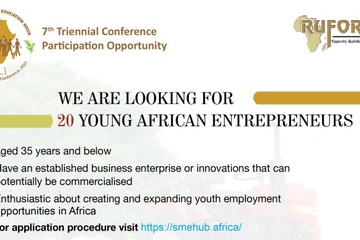
2021 RUFORUM Young African Entrepreneurs Competition
The Regional Universities Forum for Capacity Building in Agriculture (RUFORUM), a consortium of 129 Universities in 38 African Countries, is pleased to announce the call for 2021 RUFORUM Young African Entrepreneurs Competition (RUYAEC). The overall purpose of the RUFORUM Young African Entrepreneurs Competition (RUYAEC) is to catalyse entrepreneurship through promotion of business innovation and provision of seed funding to young entrepreneurs with creative and innovative business ideas among African youth. RUYAEC will target young African entrepreneurs and incubates below 35 years of age to compete for 20 awards that show case their innovations, enterprises, business concepts and propositions.
This fourth round (see previous rounds here) of the RUFORUM Young Innovators Competition will be an Africa-wide competition and hence it will target all African countries. The awards will be made in Cotonou, Benin during the RUFORUM Triennial Conference in December, 2021.
RUFORUM targets to provide 20 awards to young innovators and entrepreneurs in the following fields: Food and agribusiness, Incubations, ICTs, Health, Engineering, Natural resources, and Meteorology, among others. All the 2016, 2018, and 2019 RUFORUM Young Innovators Awardees are NOT eligible to apply.
The RUYAEC operates within one of RUFORUM’s values and principles of creativity seeking to offer opportunities to develop innovative solutions both in addressing the problems faced by smallholder farmers, and in managing research projects in remote areas.
For more information, please visit https://ruforum.smehub.africa/. The new revised deadline of submissions of applications for this fourth round is 31st August 2021.
Read more

By: Madeleine Futter
Due Date: Aug, 31, 2021
Other

Leave a comment